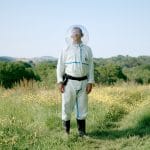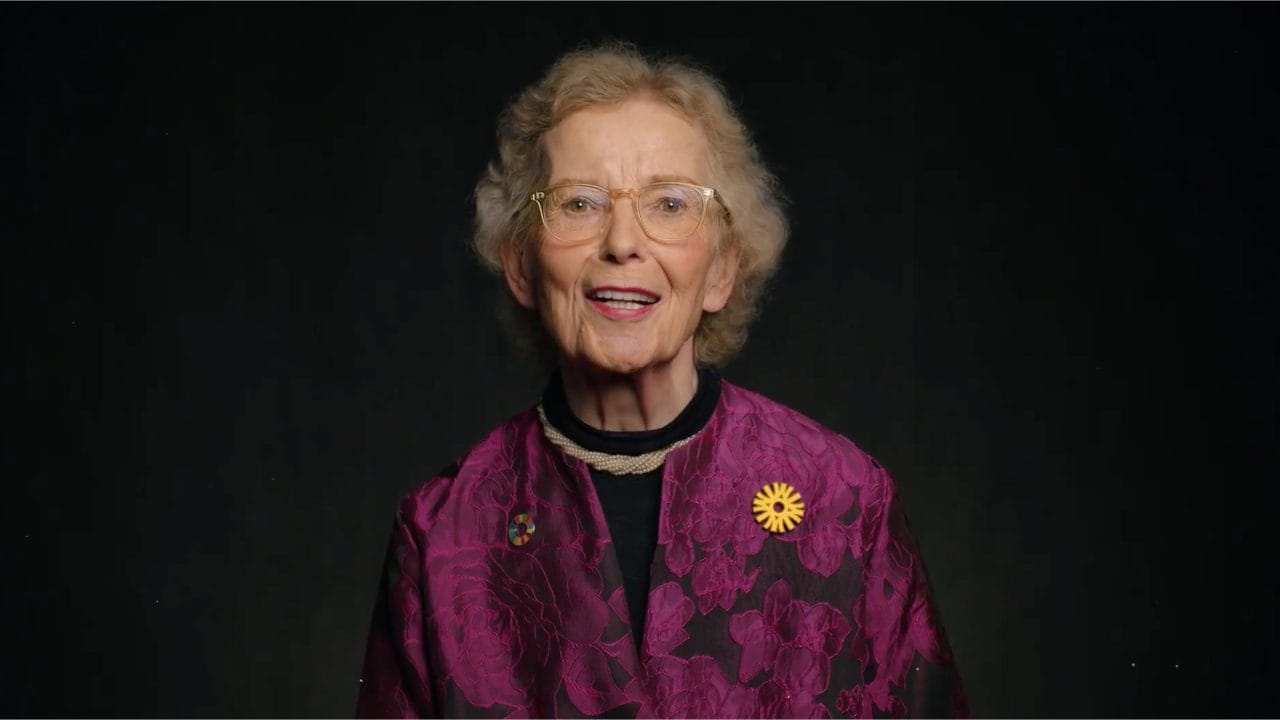On scaling sheer cliff faces, looking backwards to move forward and telling doom to f-off at Climate Week.
What do climate change and a sheer rock face have in common? They’re both seemingly insurmountable obstacles – causing many a mere mortal to stop in their tracks and turn back.
Not freeclimber Alex Honnold. He is undaunted by either. It’s why he has interrupted his training regimen (although only momentarily, judging by the chalk still on his hands), to sit on a stage far from his natural habitat, in the middle of New York, in the middle of Climate Week.
This is the guy who scaled El Capitan, 3,000 feet of vertical granite, without ropes. He has eyeballed his own mortality and carried on regardless. Inching ever upwards, from one tiny foothold to the next. He knows a few things about fear. And persistence.
“Being afraid just doesn’t matter a lot of the time… you just need to act”
Alex Honnold
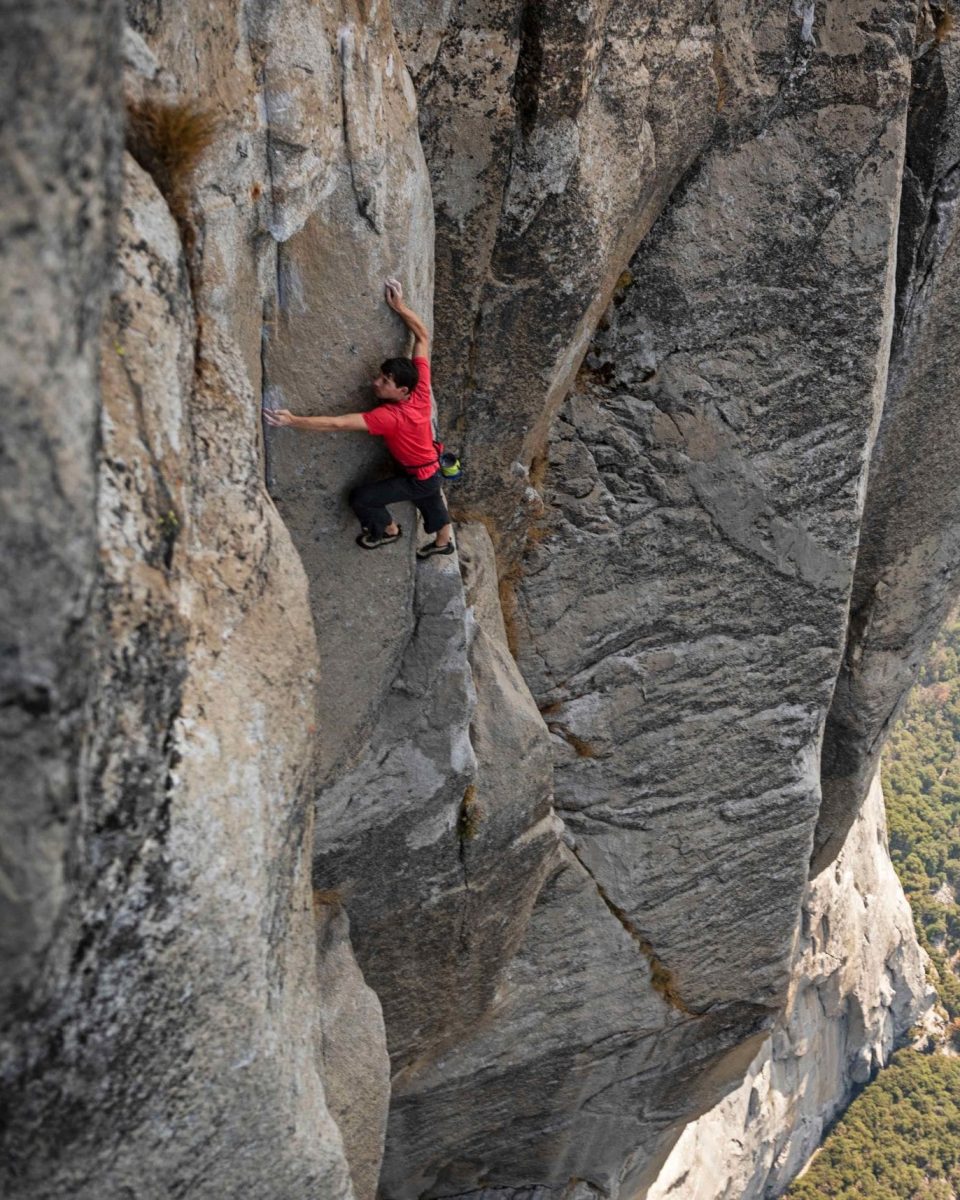
His biggest lesson? “Being afraid just doesn’t matter a lot of the time…you should just ignore it. You just need to act. And I think in the case of the climate crisis, that’s probably most often the case,” he says.
For a man who has spent a lifetime seeking out some of the world’s most dizzying heights, his advice feels very grounded. “If you consistently do a little bit for a long time, it kind of adds up. I think humans are capable of much more than we often try. We can do very hard things… we just need to go out and do it.”
It’s something he also applies outside of his climbing career, helping to fund solar energy projects in underserved communities. In the past five years alone, the Honnold Foundation has supported over 70 partners in 27 countries.
He is speaking at Solutions House, an event staged by environmental think tank Futerra. It’s just one of 1,000 events at New York’s annual Climate Week – the biggest gathering of its kind. This year broke previous records, drawing an estimated 100,000 people. People like Honnold, looking for ways to do hard things.
Answers only
Because aren’t we all facing the same vertical climb – desperately searching for footholds on the way? At a certain point you need some proof of progress inspiring you to keep at it.
There was plenty of proof to be found at Solutions House, like Project Dandelion, inspired by the bright, hardy bloom that’s the only plant to grow on all seven continents. It’s a women-led campaign for climate justice founded by former UN High Commissioner for Human Rights Mary Robinson. The aim? To be like dandelions, “resilient, relentless, finding every opening in every path… to build a future where everyone is safe from a changing climate”.
The initiative has just launched and the team has high hopes to “spread like a weed” connecting individuals and organizations to build a global coalition. Members of the movement, active ‘dandelions’, could already be seen seeding change in New York’s Bryant Park, sharing their visions for the Global Ethical Stocktake: the values and responsibilities that must be transformed into commitments at the upcoming UN Climate Conference in Brazil in November.
And from flowers to grassroots, another star in persistence is Beyond Petrochemicals, an organization working with frontline communities to halt petrochemical expansion. Since launching in 2022, the group has already stopped 31 plants from firing up operations in the US, preventing 42 million tons of carbon pollution from entering the atmosphere.
For executive director Heather McTeer Toney, that success is down to stories and the community action they spark. “Stories are actually energy. They don’t run out. They get stronger and stronger the more that we share them… They’re like spiritual solar panels. And every time you tell a story, you’re catching light, you’re sharing it, you’re storing it, and you’re passing it on to the next person.”
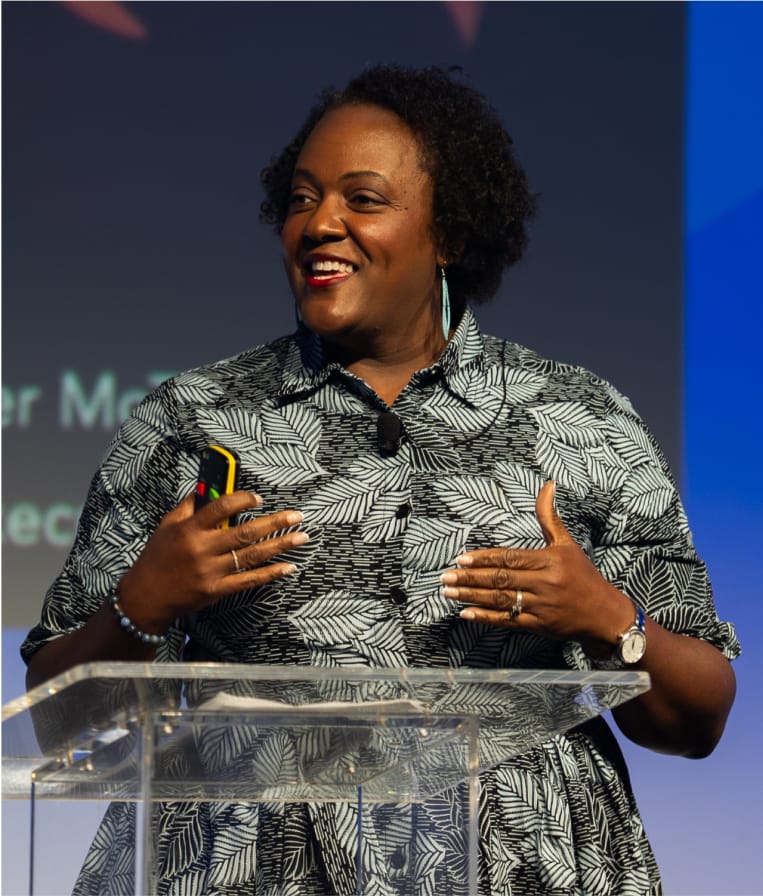
“Stories are energy. They’re like spiritual solar panels”
Heather McTeer Toney
Like Honnold, she too stresses the importance of starting. Movements “are not built on perfection, but they are built on steps,” she explains. “What is your step one? Maybe it’s refusing the single-use plastics that come in your takeout. Maybe it’s showing up at a zoning meeting. Maybe it’s donating or voting or speaking up. Maybe it’s getting on Netflix to learn something new through a documentary. Step one is deciding that you are going to be a part of the story. So the question becomes, what are you going to do?”
“We’re not drowning”
It’s a question Fiji activist Fenton Lutunatabua has sought ways to answer for over a decade, first as a volunteer for Greenpeace and later with the Pacific Climate Warriors, the group he founded to counteract the idea of Pacific Islanders as victims. “Because we’re not drowning, we’re fighting.” Today it has grown into a powerful network spanning 17 Pacific Island countries fighting for climate justice and operating as the regional chapter of influential international climate movement 350.org.
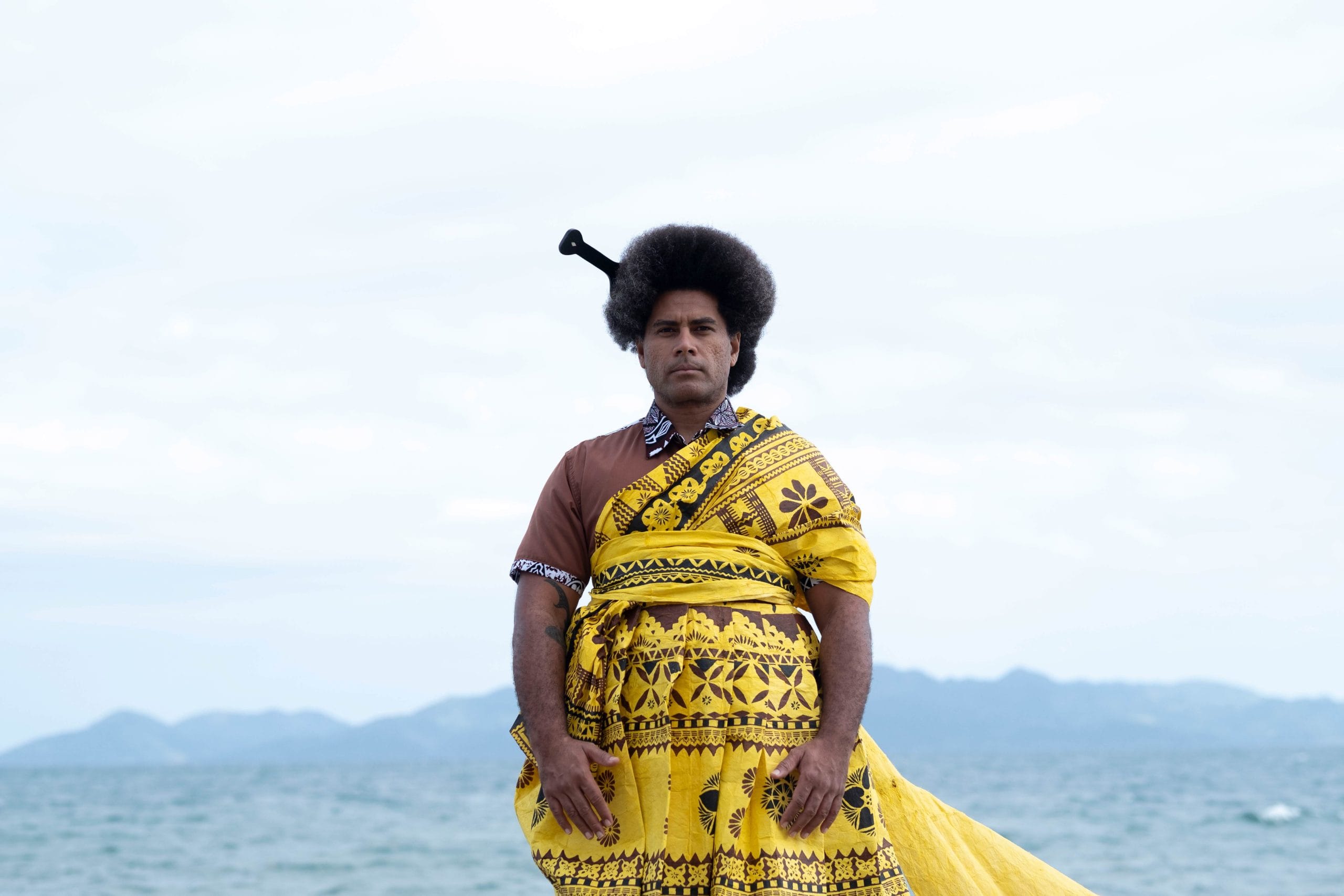
Fenton Lutunatabua, founder of the Pacific Climate Warriors. Photo: Ropate Kama
We’re so used to thinking of progress as a kind of eternal march onwards and upwards. But for him, the way to a more equitable future entails exploring steps already undertaken. “There’s a concept in the Fijian culture where we walk backwards into the future,” he says, describing that “in order to know where we’re going, we have to know where we come from”. It’s an “acknowledgment of elders and ancestors and all of the wisdom that they hold and we inherit”. The son of fishermen and boatbuilders, it’s this knowledge of his ancestors that helps him anchor his actions and shape the tomorrow that he envisions. It enables him to “be the bridge” between the past and the future.
More than hope
Futerra’s own founder and ‘solutionist-in-chief’ Solitaire Townsend has another take on how to face of this existential challenge. She can sum it up in five words: “We need to f*ck doom,” she says. It’s a conclusion she has reached after a career of almost 30 years spent working out how best to fight climate change and get people engaged.
“If I’ve learned one thing, it’s that me being sad and guilty and overwhelmed does not help anyone else,” she says. Especially in a world where 55% of under 30s now think there is nothing we can do about climate change. “That’s why I’m more afraid of fatalism than I am of climate change, because things only get shit if we give up.”
“Doom is the enemy, doom wants us small,” she says. “But we really need more main character energy. We really need to not be extras in the apocalypse. I’ve spoken to scientists. I’ve spoken to experts. All of them say this isn’t over unless we let it be. We still have everything we need to fix this planet.”
And, if you don’t do it for the climate, do it for the cool merch: like a sleek black baseball cap with F*CK DOOM stitched in neon across the front. (Because every successful movement needs an iconic cap right?) To complete her crusade against doom’s dark force, she’s even started a campaign.
“Doom is the enemy, doom wants us small”
Solitaire Townsend
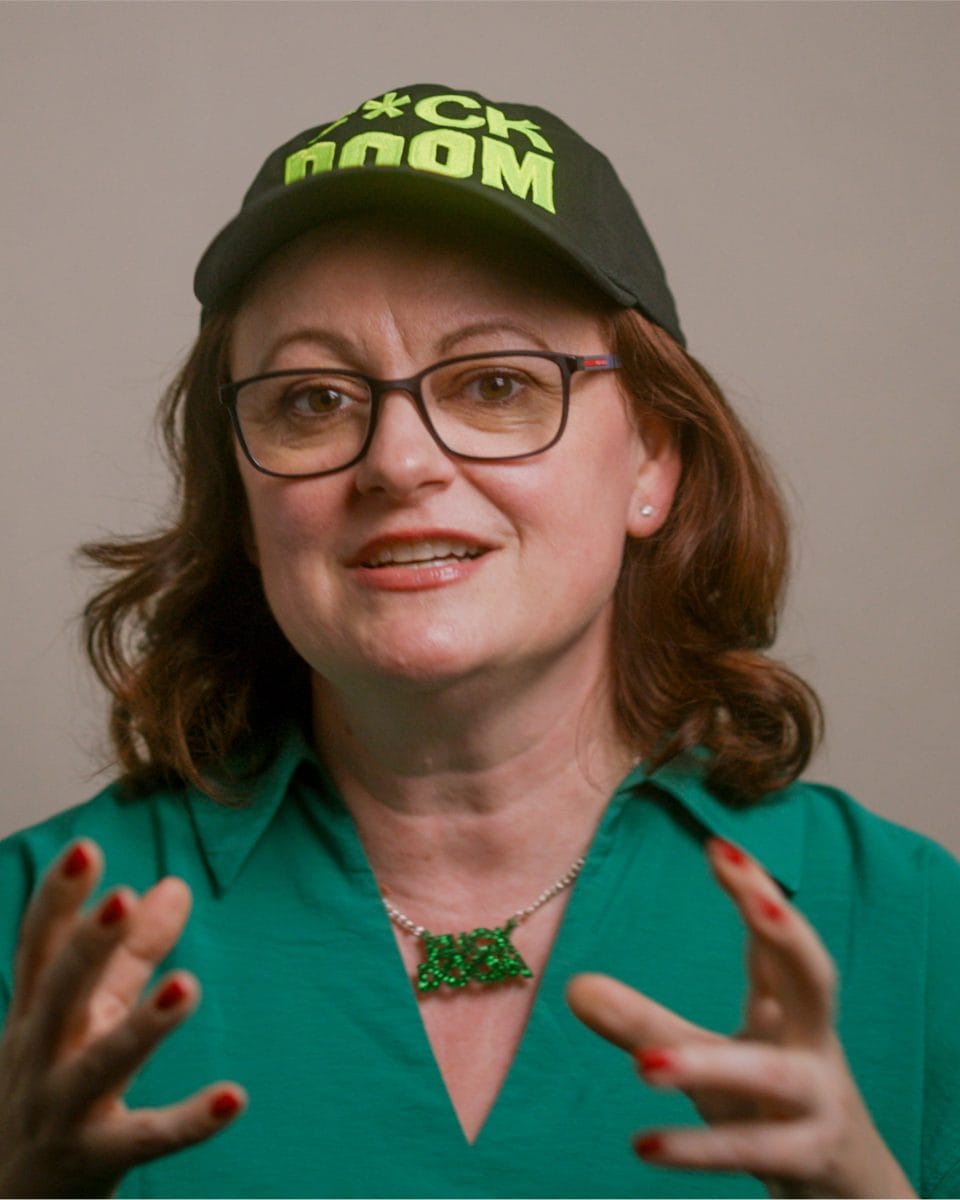
No but seriously – hat or no hat, we can all give doom a big fat finger today by taking action. Any action. Because the groundswell of social, behavioral, policy and economic change we need ultimately doesn’t take place on a stage. It’s what happens when the stories we hear take root and we carry them away with us into the world.
This is our only chance, because as climate scientist and former astrophysicist Kate Marvel points out, of the 5,000 new planets that scientists have discovered, “Earth is the only good planet. It’s the only planet that supports life. All the other planets are garbage”.
So here’s calling on main characters by their millions.
The stakes are high, what’s your first step?

Cover star Madame Gandhi on the sounds of the Antarctic, free climber Alex Honnold reveals his biggest challenge yet, actor Rainn Wilson embraces his soulful side and much much more!

